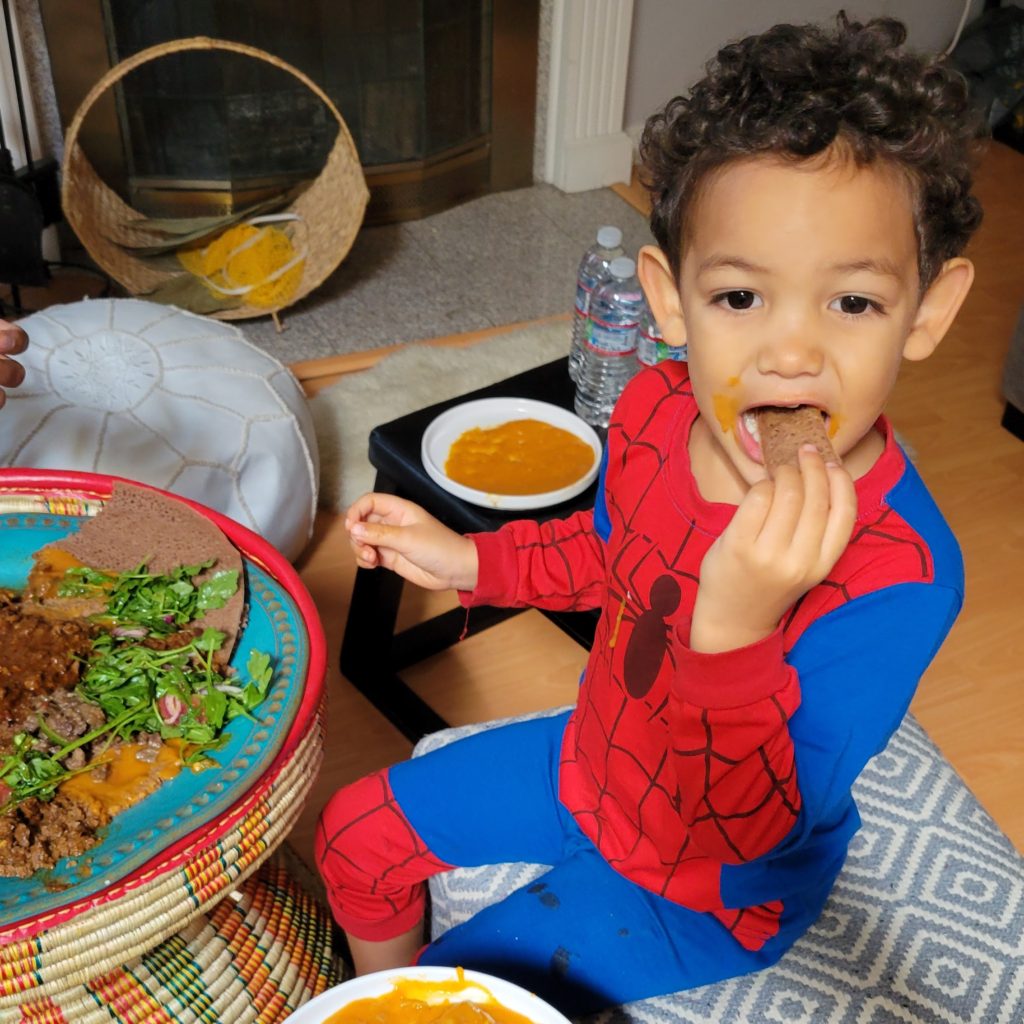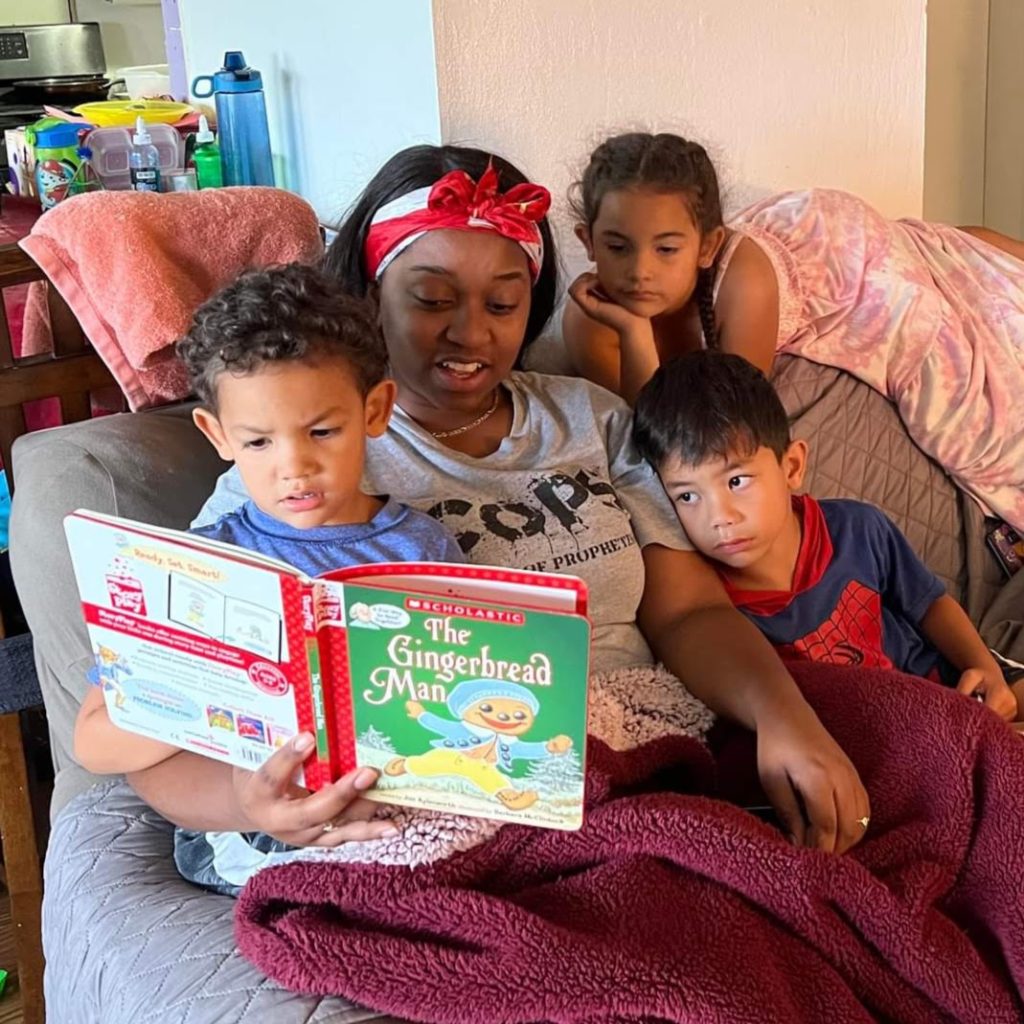A recurrent theme in Braiding Sweetgrass is the gift economy, which operates in a completely different way than our commodity economy. A gift economy meets the needs of everyone based on relationships rather than exchange of currency. When I go to FoodMaxx, select all my groceries, and pay the person checking me out, our exchange has ended. There are no further expectations. However, if a friend brings me food because I am sick, that builds the bonds of a relationship. When I am out and about and see a book that reminds me of her, I am likely to purchase it and gift it to her, reinforcing those bonds.
After reading the book, I started looking for ways that I could cultivate the gift economy in my own life. I strongly believe that the American sense of buying our way to happiness has done the exact opposite. In this vein, I want to minimize how much I purchase through the commodity economy in order to maximize my relationships with others. Some friends from church bring whole bags of clothes to give away so that they can minimize their own possessions while giving other people the opportunity to own “new” things. Second hand websites are our favorite place to get household items, and I frequently list our used items for free.
One of the areas that I have seen the gift economy at its finest is in asking for help. One area that Afa and I have to ask for help in is leading Children’s Ministry. We work on a rotation basis so for every new rotation, we seek out volunteers to help teach. On a completely separate topic, asking for help is always hard for me. But one of my friends had recently asked me for a job reference, and she happened to be one of the best teachers we have. Because I was able to help her, it was easier to ask her for help, which was an excellent example of the gift economy at work.

Because of our Western mindset, that can seem like a commodity exchange. I was only willing to help her because she had been a teacher or vice versa. However, looking at it through the lens of a gift economy, it was based on the residual strengthening of relationships, not on a vis a vis exchange. It takes a mindset shift to see how gifts of time, of support, of love blossom into stronger relationships because we are so often taught to treat these precious treasures as commodities themselves. A common refrain in Western thinking is that if I’m not receiving the love and support I deserve, I shouldn’t have to give that to anyone else. Or, similarly, if someone is not loving me according to my love language, I have the right to be angry and bitter.
Rather than seeing these as an exchange of commodities, when we look at them as an exchange of gifts, it becomes easier to give love when it is not necessarily deserved. It becomes more natural to accept the love in the form it was offered rather than demanding it in the form you want. It changes our perspective into one of gratitude rather than entitlement.
I also consider the gift economy when I think about homeschooling. This was our first year homeschooling, and I spent much more money than I anticipated. As social media is wont to do, the more homeschool moms that I followed the more I felt the “need” to purchase more stuff. There were some items and curricula that we needed and that were good investments. However, there were many packets, books, and planners that I thought would bring an overhaul of joy to our homeschool. Or would help me with subjects that I struggle with. For example, the one subject that I have neglected more than any other has been science.When I see a homeschool mom selling a science packet, I immediately want to buy it. The problem is that I already have one. I simply need to open it and use it on days that we are supposed to do science. I don’t need more purchases to do science with the kids. I need more discipline.

The commodity economy has even infected seasons when the gift economy should be thriving. Christmas gifts are not always given out of love and joy but out of compulsion, sometimes driving the givers into debt. This is our commodity economy fully working. Instead of purchasing cheap plastic gifts that no one really needs, we would make our gifts of time and connection. We could move away from “everyone bring a $20 present” to “everyone share something you adore about the other people in the room.” Maybe we could disconnect physical gifts from Christmas and purchase small gifts when the item reminds us of a person for a particular reason. The amount of money that is spent at Christmas for stuff that is going to further clutter our packed homes is shameful when there are so much stronger ways to build relationships outside the commodity economy.
Dr. Kimmerer discusses the possible ways in which we have a gift economy with nature as well as with one another. It made me think about how differently we would view nature if we saw the gifts that nature gives us. How would we look at trees differently if we understood that their oxygen, their shade, and their fruit were all gifts? Would we do more to protect their growth and their roots? Would we plant more trees as a way to reciprocate that gift? This is less a hippie, tree hugging thought exercise than it might seem at first. The ground gives us food, so what could we do to take better care of that? What could we purchase less of that would help take care of the world that gives us abundant gifts?
There is a huge shift of mindset when we as Americans consider the gift economy. We have been taught from such a young age that the commodity economy is “normal,” that this is the way the world is supposed to operate. However, we can step outside of that preset understanding to see that there are other ways to view the world, and in some cases these other ways may even be better.